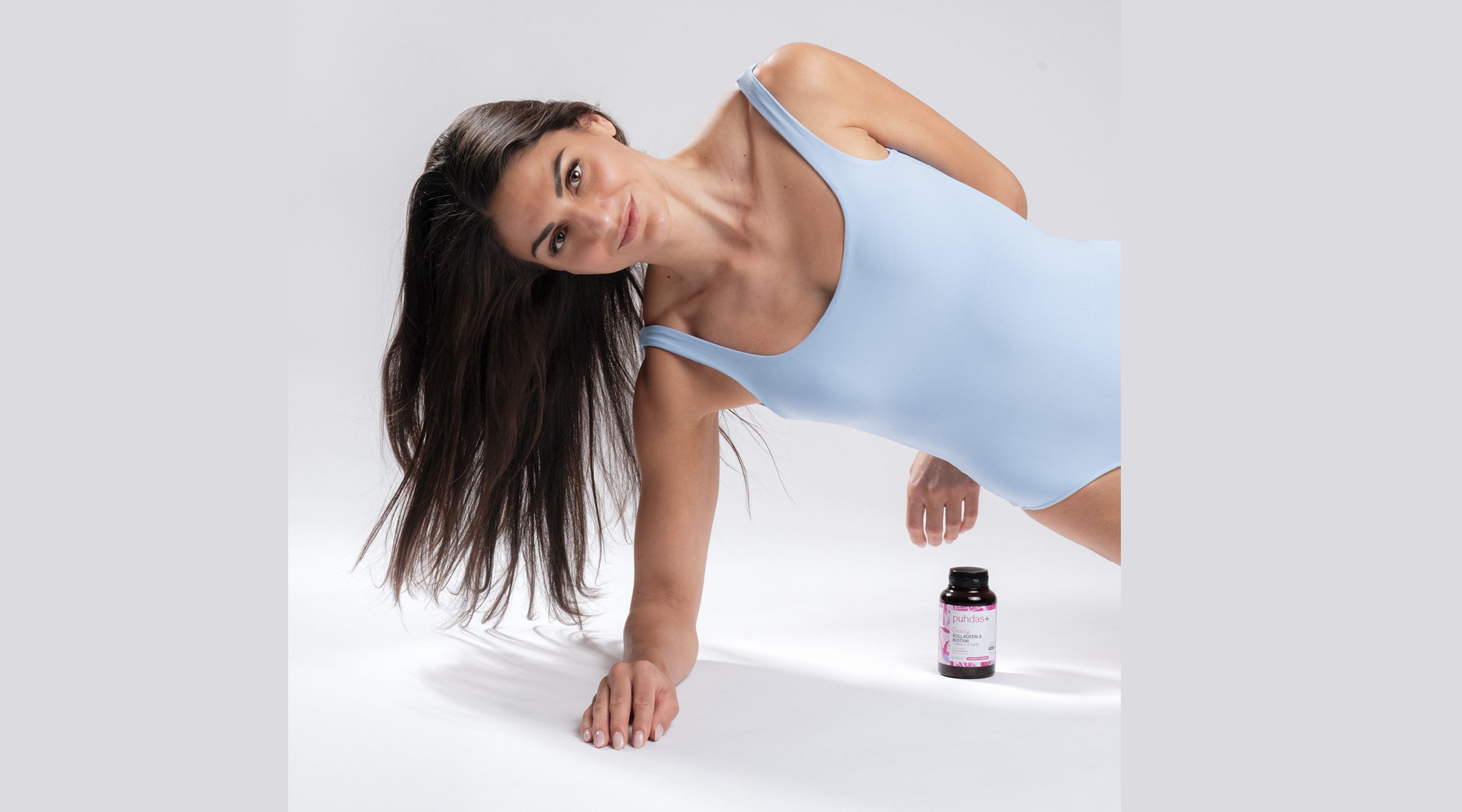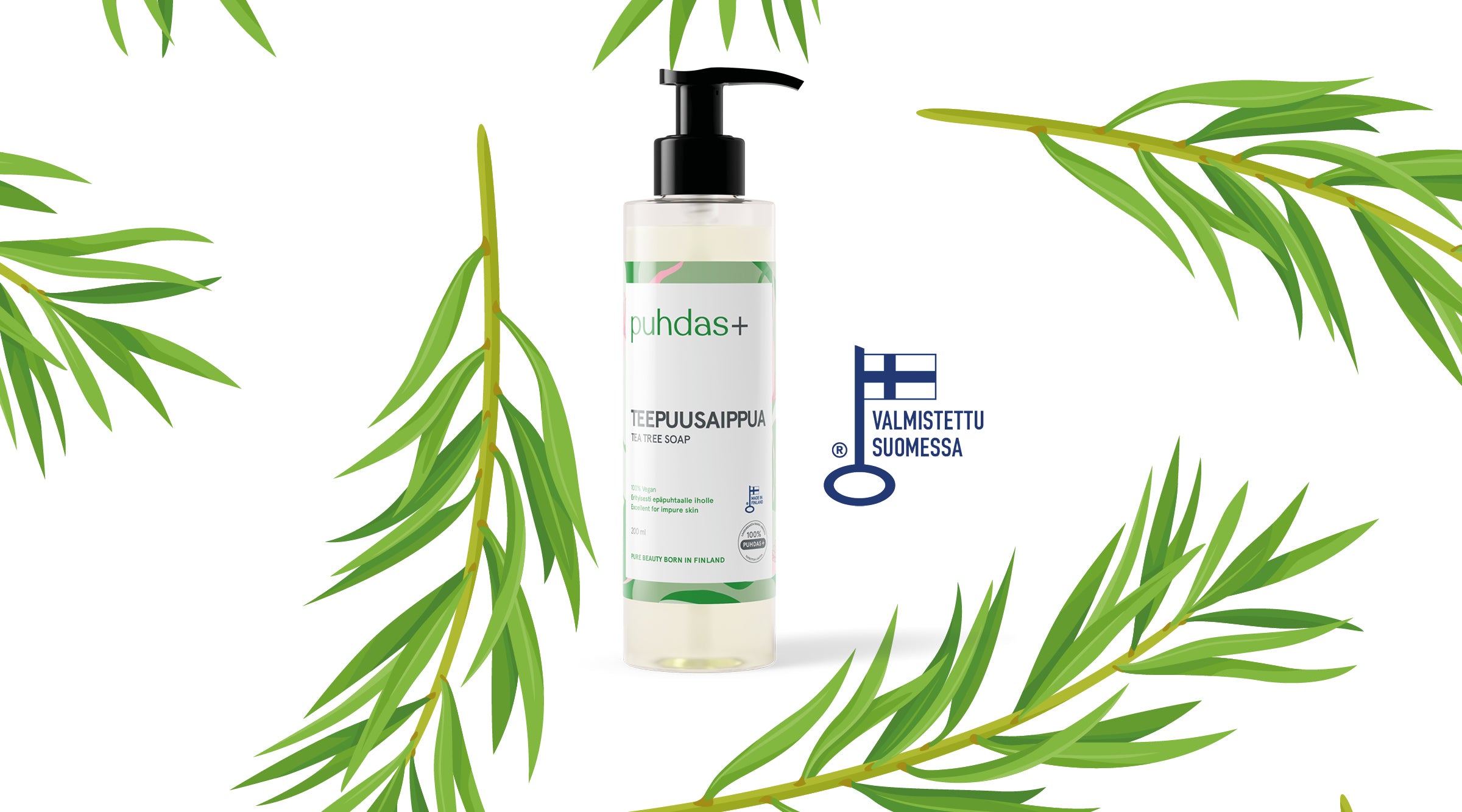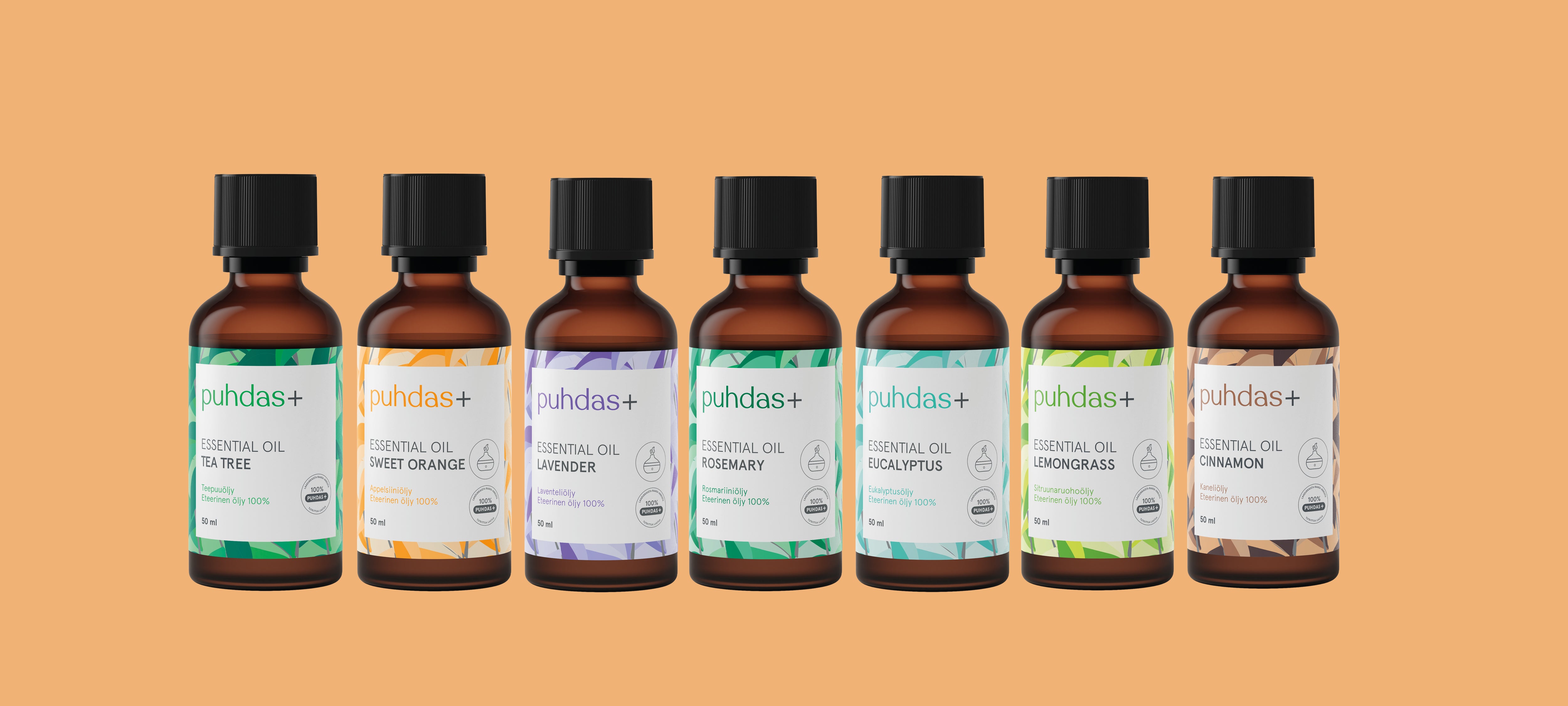Using
essential oils is a wonderful way to create freshness, pampering and well-being in everyday life. Genuine and pure essential oils are 100% natural products, but did you know that natural is not always synonymous with mild? Essential oils are indeed very strong compounds, the use of which has its own limitations. However, by following smart dosing instructions, using essential oils is easy, enjoyable and safe. In this series of posts, you will get a lot of tips for your journey into the charming world of essential oils!
The most common uses of essential oils and the most important safety instructions
Room fragrance High-quality, well-chosen essential oils can be used to create, for example, a concentration-facilitating, relaxing or sensual atmosphere in a room. Many people use essential oils, for example, in addition to work that requires precision or to help them fall asleep. However, if the essential oil is dispensed carelessly, the atmosphere may actually provide a headache instead of the desired effect. Depending on the size of the room, you can add, for example, 1-6 drops of essential oil to
the diffuser (i.e. aroma vaporizer) or scented lantern. The number of drops also depends on the chosen oil (or their mixture) and who is in the room. In a small space, or when using more strongly scented and effective oils, the dosage is of course milder. By getting to know the essential oils you use carefully, you will get the best possible effect from them. A fresh-smelling essential oil, such as
lemon , creates the impression of cleanliness and brightness in the space. Sweet
orange can be its own room scent when there is a lot of stress in life. Strong
peppermint and
eucalyptus oils , on the other hand, are good for opening a stuffy nose. You can also mix essential oils together: Try, for example, a refreshing combination
of rosemary and lemon when you need a lot of freshness in your day. Some diseases, such as asthma or epilepsy, may be an obstacle to the use of essential oils. Many essential oils (such as peppermint and eucalyptus mentioned above) are also not recommended for use around babies and small children. A trained aromatherapist or counselor can best advise on the safe use of essential oils with special groups. Care must also be taken when using essential oils in pet households. If your pet faints, becomes paralyzed, becomes restless or leaves the room when you use essential oils, it is a sure sign that they are not to his liking and should not be used in the presence of the pet's sensitive nose. Also, never dose the essential oil raw on your pet's skin or coat. If your pet has any problems, always consult a veterinarian first. It is good to give the noses of both animals and humans a break from all scents. So ventilate the room regularly and keep the fragrance mild and/or short-lived. You can keep the diffuser on, for example, for an hour at a time.
Sauna fragrance It is not recommended to add essential oils directly to the bath water, because they get very hot when they reach the stove. Rather, scent the sauna by adding a couple of drops of essential oil to, for example, a clay sauna gnome's beard, a scented stone or the corner of a tablecloth.
Skin care, massage and baths Essential oils should always be properly diluted when used on the skin. By doing this, you can avoid possible skin irritation and allergic reactions. Most often, essential oils are diluted in various cold-pressed vegetable oils. An easy one-time dose at home, for example for a sleep-inducing foot massage, is 1 drop of
lavender essential oil mixed with barely a tablespoon of cold-pressed
jojoba oil . If you want to make your own body care or massage oil, you can mix 10 drops of pleasant-smelling essential oils and 50 milliliters of cold-pressed
almond oil . Choose either invigorating or relaxing essential oils for your mixture, depending on the purpose of use. Essential oils are fat-soluble, that is, they do not mix with water as such, but remain floating on the surface, possibly ending up in contact with the skin and mucous membranes. Hot water increases the potential of essential oils to irritate the skin. When preparing pampering and fragrant bath moments, it is important to properly emulsify the essential oil in, for example, your liquid natural cosmetic soap before adding it to the water. If the essential oil is mixed with cold-pressed vegetable oil and then added to the bath water, the skin can be moisturized while bathing. You can get a relaxing oil bath by mixing, for example, a drop
of ylang ylang and a couple of drops of sweet orange with a tablespoon of almond oil. Add this mixture to warm bath water and mix it into droplets on the surface of the bath using the shower. After bathing, pat the nourished and moisturized skin dry with a towel. If the essential oil is spoiled, it may irritate the skin even when properly diluted. For example, the essential oils obtained from the peels of citrus fruits often become very irritating to the skin as they age. Also note that some strong essential oils, such as
cinnamon , may irritate the skin even when diluted, and are therefore not recommended for use on the skin. (Instead, a drop of cinnamon can be a lovely addition to Christmas room scents.)
The use of essential oils internally is never recommended without the guidance of a knowledgeable professional. If used incorrectly, essential oils can cause serious side effects. However, by using essential oils correctly, you can happily enjoy their various well-being-enhancing effects! What is your favorite from the range of
Puhdas+ essential oils? Also read ABS of essential oils, part 2
here Renowned aromatherapy trainer Jenna Puumalainen works as a guest writer for Puhdas+ Essential Oils. Jenna works as a naturopath, aromatherapy trainer and chairperson of the board of the aromatherapy association.




